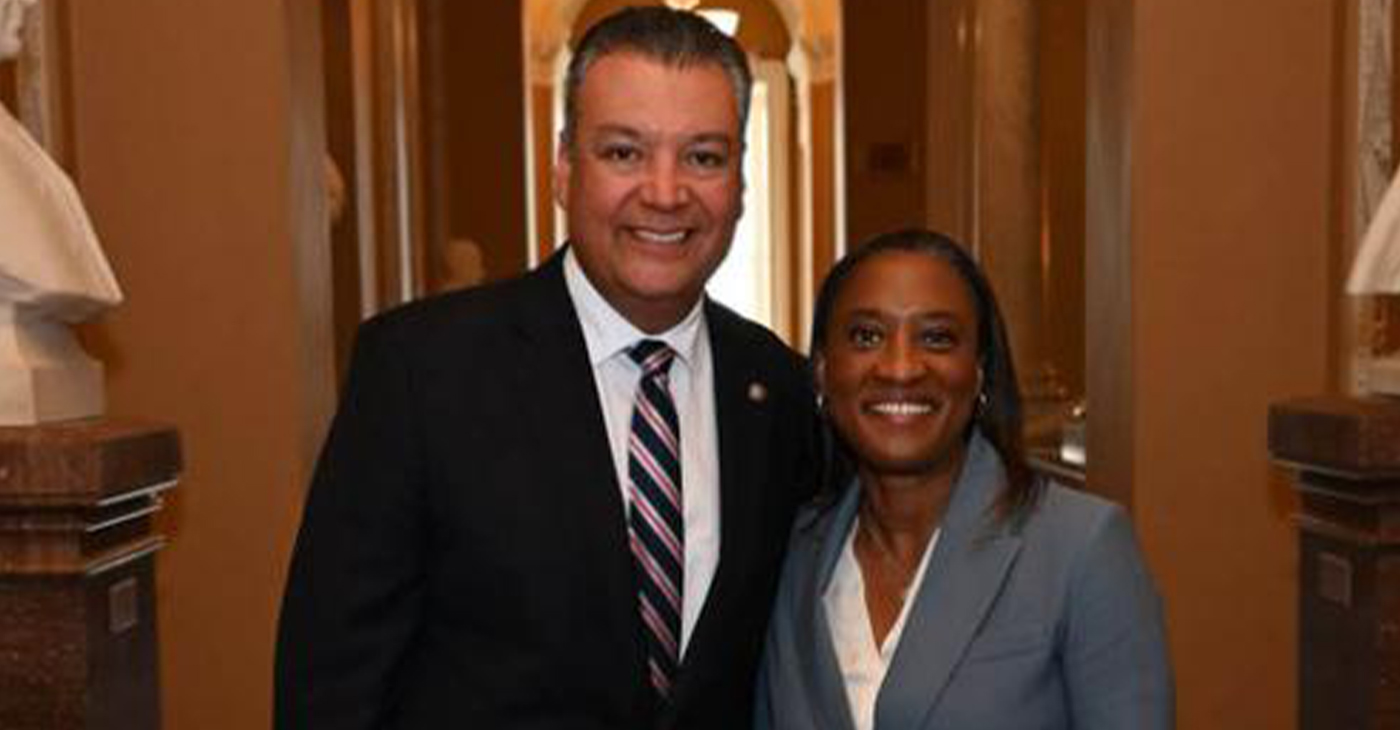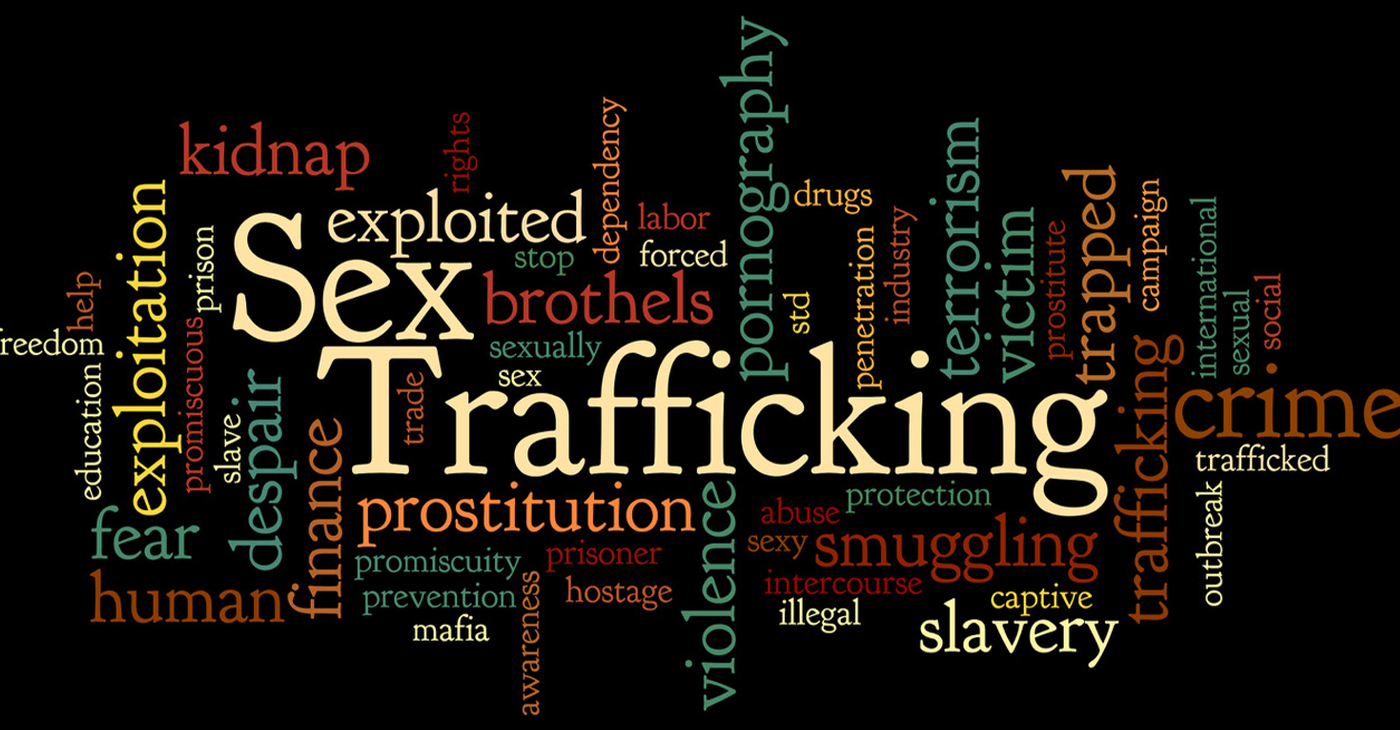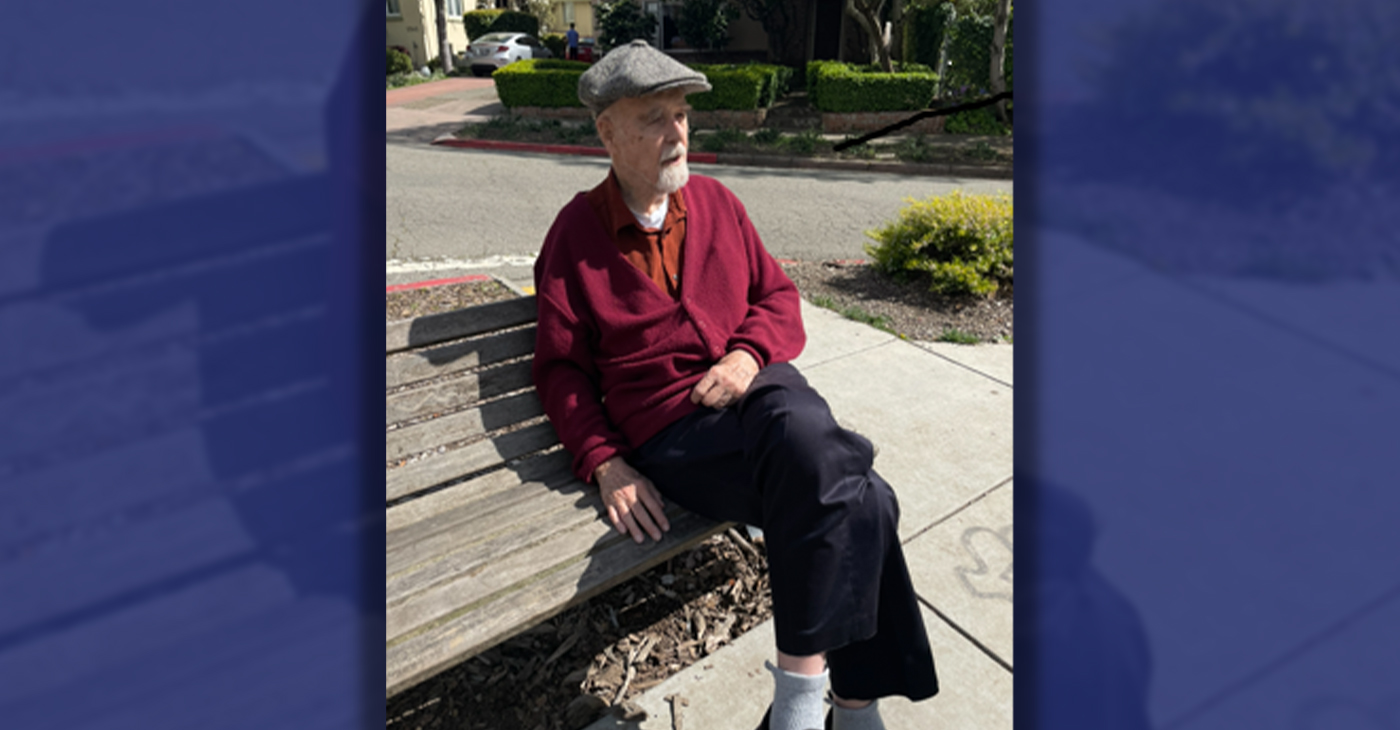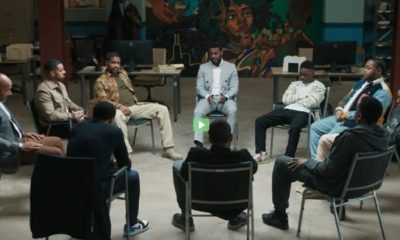Featured
Mental Illness, A Taboo That Needs to Be Addressed
Mental illness has always been a taboo subject in Black communities, kept behind closed doors, viewed as “family business” and swept under the rug.
Some say it is more stigmatized than HIV/AIDS. African Americans comprise 14 percent of the United States population but more than 25 percent of the nation’s mental health needs.
Itis past time to begin reshaping and reinvigorating the public conversation on Black mental health.
Intent on shining a light in the darkness of shame and stigma, Alameda County’s Behavioral Health Care Services held a luncheon for over 100 mental health provides/case managers, educators and administrations, consumers, families members attended. It was part of a full day of speakers, workshops, addressing the disparity of the over-utilization of services; higher rates of recidivism and poor outcomes African Americans are facing around mental health.
Carl C. bell, M.D, former president/CEO of the Mental Health council in Chicago, IL., was the keynote speaker. He offered insights and support towards meeting goals to reduce mental health disparities for the African American community, following the recommendations outlined in a 2010 Alameda County African American Utilization Report.
“You’re already doing the work”, Bell told the packed audience.
“Rebuild the village, culture helps people flourish,” says Bell. “We need cultural and spiritual nuances, beliefs, practices and norms specific to the African American community. These should be incorporated into the planning, delivery and outcomes of mental health and co-occurring conditions services for this community”.
Over the past 30 years, Black male suicide rates have climbed by more than 200 percent. The depression rate among Black women is 50 percent higher than their white women.
Many African-Americans have a lot of negative feelings about mental health services, and many are not even aware of the mental health services that exist. They do not know the symptoms of many mental disorders, or they may believe that mental illness is a sign of weakness or of a character fault.
Blacks are a particularly high-risk population due to their over-representation within a context of social misery. Currently, Blacks account for 40 percent of the country’s homeless population and nearly 50 percent of the prison population.
Black children represent nearly 50 percent of all foster care and adoption cases. Additionally, almost 25 percent of Black youth are exposed to enough violence to meet the diagnostic criteria for post-traumatic stress disorder.
The fields of psychology and psychiatry historically have sometimes played a very negative role in the diagnosis of African-Americans and in the general sort of racist orientation towards African-Americans and their problems.
The stigma thus comes from two directions, from the community and at times from the professions themselves.
For example, how will professional react If a Black man tells his therapist that every time he’s stopped by a police officer, he gets very anxious and nervous and thinks something bad is going to happen? Would the patient be considered paranoid? If the professional does not understand the social reality in which the patient lives, the possibility is there for misunderstanding.
Exacerbating this problem, only 2 percent of psychologists and percent of social workers in the U.S. are African Americans. So an emphasis on cultural competence and trying to get therapists to be aware of the role that culture and social context can play in treatment is a very important thing.
African Americans tend to rely on family, religious and social communities for emotional support rather than turning to health care. When the church plays a role, it can be a very positive force in the community, which has been seen. People who are more spiritually inclined often have better outcomes.
If folks get the appropriate treatment, they can have good outcomes.
Now is time to address the structural issues can contribute to Black mental health. Now is the time to spotlight the connection between mental health and other social problems plaguing the Black community.
California Black Media
California Senators Alex Padilla and Laphonza Butler Back Local News Resolution
Last week, California U.S. Senators Alex Padilla and Laphonza Butler, both Democrats, announced their support for a resolution that recognizes the significance of local news. In the resolution dated April 23, Padilla and Butler joined Senator Brian Schatz (D-Hawai’i) and 10 other colleagues in designating April as “Preserving and Protecting Local News Month.”

By California Black Media
Last week, California U.S. Senators Alex Padilla and Laphonza Butler, both Democrats, announced their support for a resolution that recognizes the significance of local news.
In the resolution dated April 23, Padilla and Butler joined Senator Brian Schatz (D-Hawai’i) and 10 other colleagues in designating April as “Preserving and Protecting Local News Month.”
The resolution acknowledges that local news outlets are a public good essential to preserving America’s democracy.
“Millions of Americans count on the local news to help them understand what is happening in their neighborhoods and around the country. Yet local newsrooms have suffered from some of the harshest layoffs and budget cuts in recent years,” Butler said in a statement.
“It is critical that we recognize the role our local press plays in keeping people informed on the world around them,” she said.
The resolution comes at a crucial time in the media industry when employment decreased by 26% nationwide between 2008 and 2020, according to supporters of the bill. Employment in the newsroom came with great uncertainty as more than 30,000 jobs were lost in the last two decades.
Sen. Schatz said that local news helps increase civic engagement and strengthens democratic norms and practices. This resolution will help local journalists maintain healthy and vibrant communities through valuable storytelling.
Activism
Calif. Anti-Sex Trafficking Advocates Discuss Competing Bills, Strategies
Advocates from across California are challenging state officials and community leaders to support legislation that provides resources and services for survivors and victims of human trafficking, as well as assistance as they transition back into civil society. Some of those advocates are also calling for more effective state policy to curtail trafficking, a crime that has an outsized impact on Black children, particularly girls.

By Bo Tefu, California Black Media
Advocates from across California are challenging state officials and community leaders to support legislation that provides resources and services for survivors and victims of human trafficking, as well as assistance as they transition back into civil society.
Some of those advocates are also calling for more effective state policy to curtail trafficking, a crime that has an outsized impact on Black children, particularly girls.
According to the FBI, a report covering a two-year period found Black children accounted for 57% of all juvenile arrests for prostitution. In addition, 40% of sex trafficking victims were Black and 60% of those victims had been enrolled in the foster care system.
“It is time to hold the perpetrators who take advantage of our children accountable,” said the Rev. Shane Harris, a San Diego-based activist, former foster youth and founder of the Peoples Association of Justice Advocates, (PAJA), a national civil rights organization and policy think tank.
“It is time to send a thorough message that if you seek to buy a child for sex, you will pay the highest criminal penalties in this state,” added Harris who was speaking at a rally at the State Capitol earlier this month. Harris was speaking in support of Senate Bill 1414, authored by Sen. Shannon Grove (D-Bakersfield), which calls for people who buy sex from minors to be punished with a felony. The punishment includes a two-year prison sentence and a $25,000 fine.
Harris said the PAJA is the only civil rights organization in the state that supports SB 1414.
Harris urged other Black-led groups who favor anti-trafficking legislation more focused on criminal justice reforms (as opposed to stiffer penalties), to “join the movement.”
Many of those civil rights groups fear that SB 1414 could lead to the incarceration of more Black youth.
Those sentiments were echoed in a panel discussion organized by Black women advocates on April 26 to examine the cause and effects of human trafficking in California’s Black communities. The virtual event was hosted by the Forgotten Children, Inc, a faith-based nonprofit that advocates for survivors and victims of human trafficking through anti-trafficking campaigns and initiatives.
Panelists shared the psychological impact of sexual exploitation on youth and children in the long term.
Author and educator Dr. Stephany Powell shared statistics and information revealing that African American women and girls are the most trafficked nationwide.
Powell, who serves as the senior advisor on law enforcement and policy at the National Center on Sexual Exploitation said that national data indicates that sex trade survivors are disproportionately women of color. She stated that male survivors often go unnoticed because boys rarely report trafficked crimes.
Powell said that decriminalizing prostitution in California could increase human trafficking. She argued that Senate Bill 357, authored by Sen. Scott Wiener (D-San Francisco), which was signed into law in 2022 and legalized loitering for prostitution, caused a surge in street-level prostitution.
Panelist and psychologist Dr. Gloria Morrow shared opposing views on decriminalizing prostitution. She said that decriminalizing prostitution could help survivors gain access to state resources and support.
Despite opposing views, Powell and Morrow agree that the Black community needs resources and educational programs to address human trafficking.
Bay Area
Faces Around the Bay: Jim Brosnahan, Esq.
James J. Brosnahan, ESQ, an international trial lawyer and trial advocacy teacher, has remained unshaken in his fervent belief in the power of the law to right injustices. Brosnahan has fought to open the legal profession to those previously excluded and worked to provide lawyers to the millions who go without.

By Barbara Fluhrer
James J. Brosnahan, ESQ, an international trial lawyer and trial advocacy teacher, has remained unshaken in his fervent belief in the power of the law to right injustices.
Brosnahan has fought to open the legal profession to those previously excluded and worked to provide lawyers to the millions who go without. He has argued for the administrators of justice to represent the whole community. He’s tried 150 cases to conclusion and is ranked among the top 30 trial lawyers in the U.S. (Legal 500 US). He’s been called “scrappy,” “a lion in the courtroom,” and “ultra- liberal.”
One of his earliest cases (1962) involved two Navajo children shot by a White man on a reservation in Arizona. “The legal system needed to work as well for Native Americans as for White people,” he said. “The defendant was found guilty of second-degree murder.”
In 1963, U.S. Attorney Cecil Poole hired him as U.S. Attorney from a list of 200 applicants.
He and Poole, as federal observers, led the Vietnam protesters as they marched. The purpose: to avoid violence.
“Poole taught me preventative law in a chaotic situation and became one of my strongest mentors,” remembers Brosnahan.
In 1964, Brosnahan served on the NAACP’s Housing Committee in S.F., when 70% of the city’s housing was not available to Blacks. They sued racial discriminators, fought for reform and opposed the displacement of minorities in the Western Addition. They won and they lost, but they became the racial conscience of San Francisco in the fight for fair housing.
In 1969, two Black community workers in Oakland were indicted for stealing federal money.
“My two clients were activists in Oakland. I believed there was an element of racism running through Washington’s decision to indict two Black men who worked every day to help the poor,” he said.
The case was eventually dismissed. In the early 70s, he responded to a subpoena and testified against Judge Rehnquists’ confirmation hearing for the Supreme Court. He had witnessed Rehnquist obstructing voting at a polling place. Amid threats on his life, he was the chief defense lawyer for the American who joined the Taliban in 2002.
Brosnahan, his wife Carol and three children moved from S.F. to Berkeley in 1964, in part, to participate in the Berkeley school integration program. She is a retired Alameda County Superior Court judge.
Brosnahan, 90, checks in to his San Francisco firm, Morrison & Foerster often. He paints, reads, walks a mile a day, journals, and lectures, while writing another book: “Cultural History of Trials over the Centuries.”
His last book “Justice at Trial,” published in 2023, details his life and battles.
He reflects, “Over my career I have come to realize that one secret for enriching your own life is trying to help others. What better way to do that than to represent them in court.”
-

 Community2 weeks ago
Community2 weeks agoFinancial Assistance Bill for Descendants of Enslaved Persons to Help Them Purchase, Own, or Maintain a Home
-

 Activism4 weeks ago
Activism4 weeks agoOakland Post: Week of April 3 – 6, 2024
-

 Business2 weeks ago
Business2 weeks agoV.P. Kamala Harris: Americans With Criminal Records Will Soon Be Eligible for SBA Loans
-

 Community2 weeks ago
Community2 weeks agoAG Bonta Says Oakland School Leaders Should Comply with State Laws to Avoid ‘Disparate Harm’ When Closing or Merging Schools
-

 Activism3 weeks ago
Activism3 weeks agoOakland Post: Week of April 10 – 16, 2024
-

 Community2 weeks ago
Community2 weeks agoOakland WNBA Player to be Inducted Into Hall of Fame
-

 Community2 weeks ago
Community2 weeks agoRichmond Nonprofit Helps Ex-Felons Get Back on Their Feet
-

 Community2 weeks ago
Community2 weeks agoRPAL to Rename Technology Center for Retired Police Captain Arthur Lee Johnson




















































